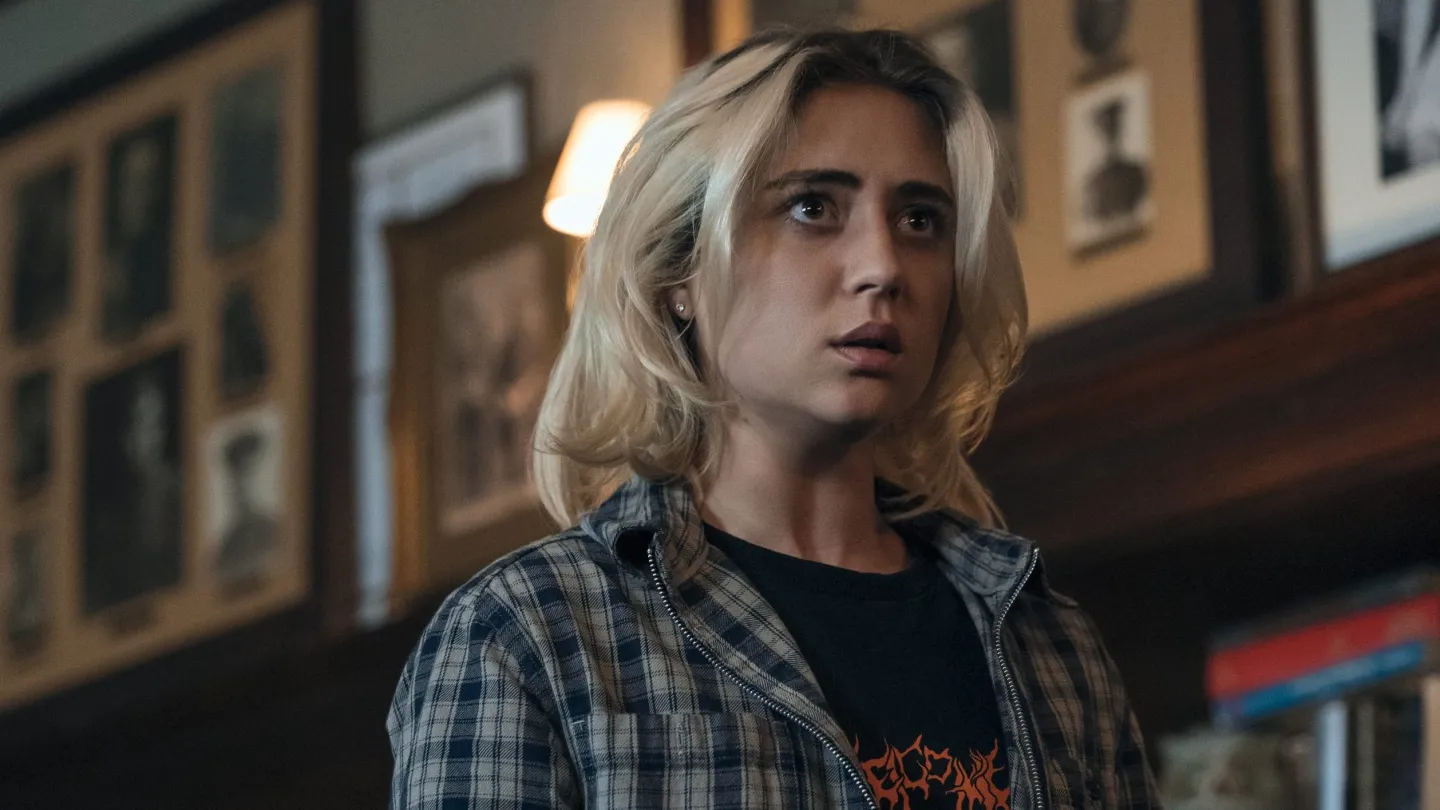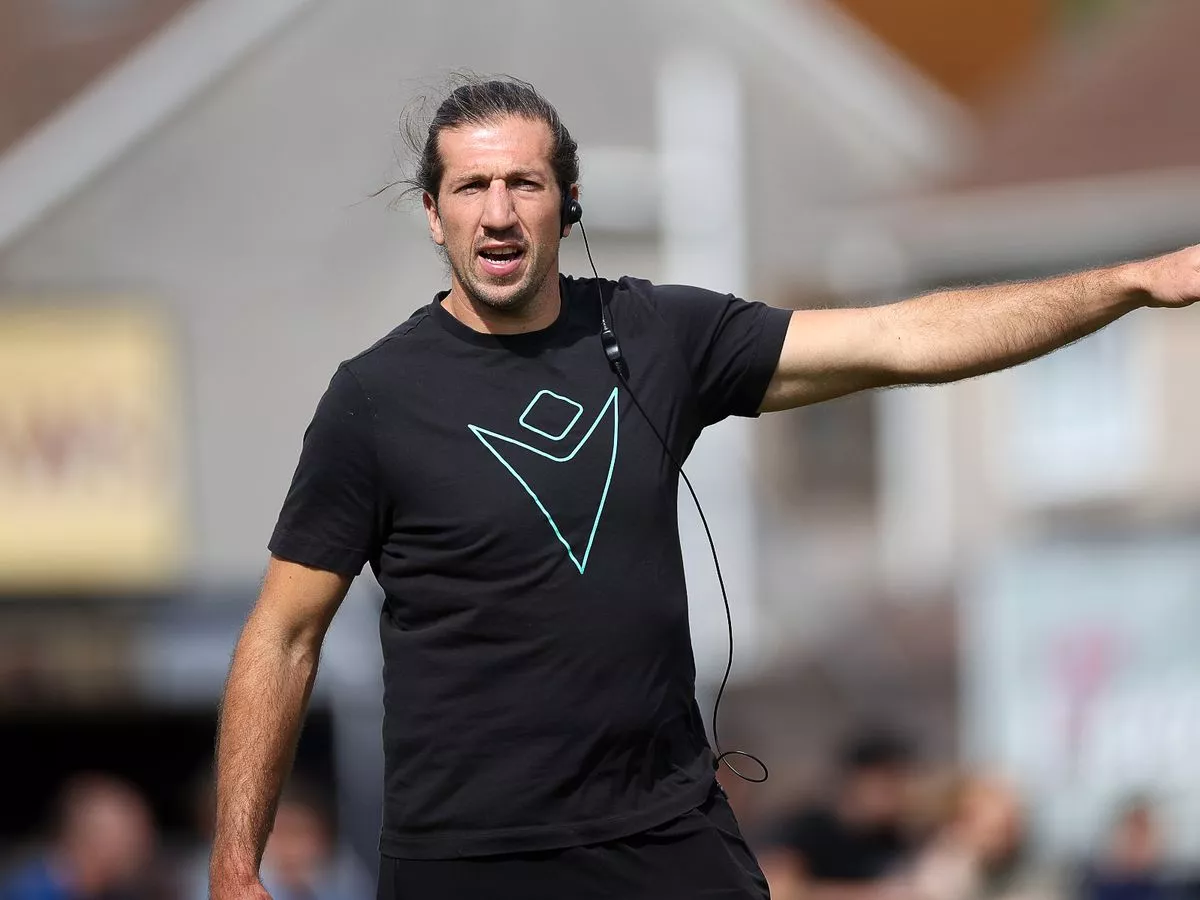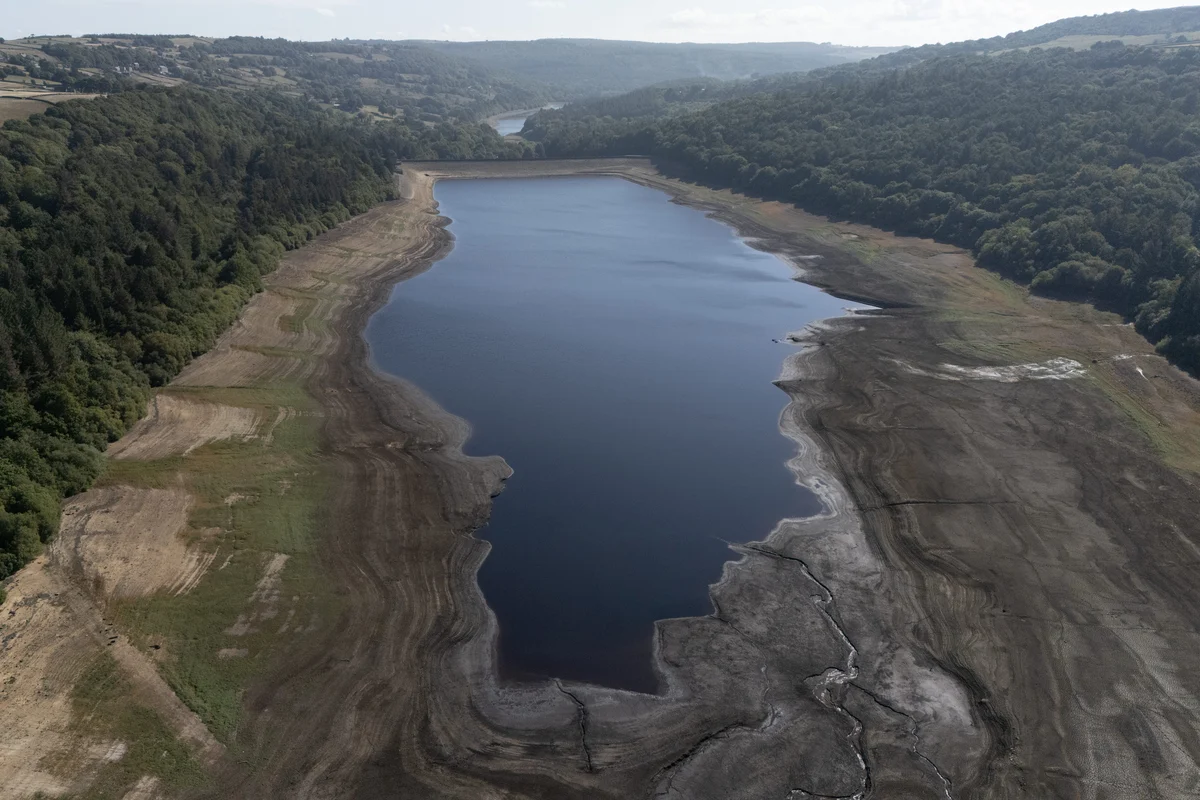
[This story contains spoilers from the first three episodes of Gen V season two.]
Gen V’s Guardians of Godolkin are back, and for Emma Meyer (Lizze Broadway), that’s only the latest chapter of her living nightmare after almost a year locked up in an underground prison following the bloody fallout of the season one finale.
To make things even more difficult in the second season of the Prime Video spinoff to The Boys, she has arrived back at the university courtesy of Cate Dunlap (Maddie Phillips), the supe and former sort of friend who — along with The Woods escapee and former fledgling boyfriend Sam Riordan (Asa Germann) — put her, Jordan Li (London Thor and Derek Luh), Marie Moreau (Jaz Sinclair) and Andre Anderson (Chance Perdomo) in a tortuous, trauma-inducing environment for nine months.
Now on the outside with Jordan — following Andre’s death while trying to escape their Elmira prison and Marie’s successful escape — Emma has made her game plan. Primarily, it’s about getting justice for Andre and becoming the hero he believed she could be, a journey that sees her in part clean up and then team up with Andre’s father, Polarity (Sean Patrick Thomas).
The other part is safely finding Marie and getting her back to Goldolkin, despite none of them wanting to be there. Under a new dean, Cipher (Hamish Linklater), it’s presumably the safest place they all can be — clearly visible and accounted for. But Marie has brought a secret with her return: She met Starlight (Annie January) while on the run, who wanted her to go back to the school and uncover what the Odessa Project is.
But then there’s the university forcing both her and Jordan to carry on the Guardians of Goldolkin front alongside Cate and Sam to remain beyond Elmira’s concrete walls; the presence of Starlighters on campus; Cate’s near-death experience when she tries to mind control them; an unrecognizable Sam currently dating Emma’s bully; along with a world that has seemingly forgotten Andre. It’s arguably harder than ever for Emma to remember her real hero qualities.
And yet, the first three episodes of Gen V’s return see Emma not just a twinge darker, but stepping up in ways even she might not have thought possible at the end of last season. That’s in addition to new things emerging about the mechanics of her powers, leaning on new allies and friends, finding new love interests, playing a key role in uncovering the mystery behind the Odessa Project and maybe putting herself on the pathway to being a hero Andre would respect.
Broadway, who portrays the supe who wears her heart (and now anger) on her sleeve, talks to The Hollywood Reporter about season two’s first three episodes, including honoring her late co-star Perdomo, those sibling vibes between Jordan and Emma, “getting big” with co-star Sean Patrick Thomas, and whether there’s forgiveness in the future with Cate and Sam.
***
Emma’s never been sunshine and rainbows all the time, but there’s an added edge to her after going into Elmira, losing Andre and then coming out to a different Godolkin and world order. It’s not just present in that sharpness to her, but also in her readily taking the lead on things she might not have before. How much of what we’re seeing is just part of Emma’s multitudes as a person, and how much of this is in response to what she went through inside the prison?
Season one Emma had this hope and innocence. Freshman year is all about making friends and being liked and discovering oneself, right? But season two, you’re right. She’s the girl who comes right out of prison; she didn’t go to rehab, so she has a lot of protective walls up. There’s less of a child-like sense of innocence and naivety. What we loved about Emma season one was that she wore her heart on her sleeve, but to be honest, she went through heartbreak with Sam, and she went through heartbreak with Andre. Loss and grief change a person. I’ve had some people in my own life who experienced a lot of trauma, and they came out different humans just to be able to protect themselves.
In season two, she realizes really early on that everyone seemed to move on during the nine months she was in prison, and is not talking about the truth of Andre. So in essence, her mourning gave her a sense of purpose. I think that’s what being a true leader this season really is. It’s overcoming oneself — overcoming your fears, your insecurities and anxieties, so you can serve a bigger purpose. I think Emma this season really decided early on to stop asking the question, “Who am I?” and instead ask herself, “Who can I be for others?” That’s exactly what Andre did, which was to fight for what was right and fight for a bigger cause. Early on, everything in my performance was to honor Andre.
Gen V — in light of Chance’s passing — really weaves Andre’s spirit throughout season two. There’s no one-and-done episodic sendoff. Can you talk about how you thought about coming back after season one without him, but also with the show and your character’s arc dedicated to acknowledging his impact and presence?
I really want to say how much Chance was a dear, dear friend of mine and the most amazing human you will ever meet. And Andre himself — the reason we loved him was because of his charm, his humor, his integrity and Chance Perdomo brought that to Andre. So it was really amazing how they carried his essence through the whole season. I’m going to say for Emma, and at least for Lizze, Emma’s newfound confidence is purely because Andre believed in her, just like how Chance believed in me. So it was a lot of parallels. Going back, it was — as an artist, you’re supposed to find the truth. But me, as a performer, I had to face that truth every day, which wasn’t easy.
Emma is very vocal and physically adamant about wanting to honor and get justice for Andre, and part of how she does that is by teaming with Polarity. Once they do, it’s clear the ways they are similar and different as people, particularly in that Odessa archives storyline. Can you talk about working with Sean Patrick Thomas in this dynamic this season, and what makes Emma and Polarity work on screen so well, even though they had almost no screen time together season one?
You feel the weight of those two characters because of how polar opposite they are, and that’s why it works. Polarity is such a still character, and Emma is like a chaotic pinball. So the dynamic and the way I had to work with Sean Patrick was just incredible. We just worked so, so unbelievably well together. And for me, it was really, really amazing, because before they rewrote the show, that scene in the archives was supposed to be with Chance. So to share that scene with Sean Patrick was like an absolute honor.
The Emma-Polarity dynamic also feels a little bit like they might be subconsciously making up for their own familial trauma with each other. Do you feel like they’re connected in that way?
Yeah, I do. I think as cliché and TED-talky as it sounds, love heals, and Emma represents something to Polarity. I think it wasn’t necessarily intentional in the writing, but that inherently comes through both of their characters. That it’s a way for them to heal each other, have each other’s back. And at least for Emma, she’s never had an adult figure believe in her and love her and accept her and even look out for her. That happens, especially in episode three, when Polarity is concerned for her, and Emma reflects back the strength that Polarity doesn’t have within himself at that time and during his grieving journey. So I really think they are healing each other.
There’s a lot going on in that archive sequence, including setting up Marie’s big reveal as The Odessa Project. A smaller aspect of that moment is how that reveal goes down — Polarity walks into this situation thinking he’s going to charmingly steamroll The Rememberer, and a very high Emma comes to the rescue. It’s yet another example of her burgeoning leadership this season.
I think Emma is a natural-born leader, and she doesn’t really know it. Going back to your first question about this edge to Emma. You have anger, you have rage, you have all the feelings because grief changes a person. It changed me. And I think in that scene, Emma realizes her biggest strength in her heroism is her softness. That is her biggest strength over the course of the season, and that’s what I wanted to portray. I wanted to mix this essence of who she is now with grief and also her old self, which was this playful, warm light, and merge those two together to be the hero that Andre saw in her.
In that sequence, we also see Emma get big. It’s comedic, but it’s also revealing in terms of the relationship between her powers and her eating disorder. Emma’s journey with this seems relatable because we’re all sort of living in a society that makes us afraid of taking up space for various reasons. But part of Emma’s power asks what it means to be big and take up space without apologies or permission. Can you talk about filming that very funny scene, but also what’s underneath around Emma’s ongoing journey with her eating disorder?
I agree with you 100 percent on the idea of this, and it goes for men and women. It’s safer to be small than it is to take up space, in this day and age. So when Emma gets big, she’s accepting of that because she’s also on drugs. She’s having so much fun being on drugs and being big for that time. I don’t know if Emma was sober, if she would be as comfortable getting that big, and that is something over the course of the season you see. With anything that has power over you, navigating how to have power over it is very messy, and it isn’t linear, and that goes for things like an eating disorder, but also your own fears and your own insecurities.
That’s one of my favorite scenes. As an artist, you put some things in your back pocket, and the fun of that scene [when Emma is naked] is that I love the sound of the Galaga . I was like, “I need to use this.” So with Sean Patrick and I — and Stephen Guarino, who played The Rememberer — that was one of the best days I probably ever had on set.
I also want to talk about Jordan and Emma this season because they get more screen time together. Their first scene, in fact, is a really emotionally intimate moment in a van, leaving Elmira to what they learn is Godolkin. Marie has left them both behind, and they seemed absolutely terrified, but leaned directly on each other. Can you talk about their expanding dynamic?
You have this with Polarity and Emma, and with Jordan and Emma — opposites attract. They give off sibling-esque energy, and over the course of that next episode, you see that banter. But everything goes back to what happened in prison those nine months, and in that really intimate scene, you have to remember that, yes, Andre is gone. We don’t know where Marie is. But, also, from Emma’s perspective, we think we’re going to die, so it’s just this acceptance between these two characters that, hey, whatever happened in the past is in the past. There’s this intimacy when two humans think they’re about to die and don’t know what’s going to happen to them. I think that’s the intimacy and the love they share in that scene. I always played it that Jordan and Emma didn’t really see each other in prison. This is the first time we’ve seen each other, and it’s at their almost death, so you see all their walls are kind of down, and the vulnerability between those characters can really shine together.
Marie, Jordan and Emma all seem to have this in different ways, but in the specific case of Jordan and Emma, there are some strong boundaries and a moral core that come in conflict around a few things, including the whole Cate attack. They nearly killed her together with Marie, and then collectively chose to not save her in a very Shetty death-like call back. Yet disagreed on what to do once she emerged from the hospital alive. What’s behind moments like that, where they band together for parts of it and butt heads in others?
They’re always on the same side, but they could not be more different in their execution of what they think is right, which goes for great storytelling and is also just really fun to play on set. Jordan and Emma both have a clear moral compass, I think, because grief makes everything black and white rather than the gray or in color. At least for Emma, she throws out really crazy ideas about how to move forward with Cate, but I don’t think there is a right answer for how to navigate Cate coming back to school. The idea of Emma thinking that it would be great to go back and kill her is because Emma is new at this, so she’s not good at being a hero, and she’s stepping into a new role of leadership. Heroism isn’t linear. It’s messy.
Speaking of Cate, Emma is very openly angry with her and Sam. It’s very much the feeling that she won’t ever forgive them, which reflects the gravity of what they did to their friends in the season one finale, resulting in Andre’s death, and on behalf of Homelander in the months after. Do you feel like Emma can ever get to a place where she trusts Cate again?
If I’m speaking from Emma’s view right now, who is Sam? Who is Cate? They are nothing. But it is really interesting. I think this speaks to human beings. If you’re talking episode one, Emma is ready to leave Cate to die is what I would say. But underneath all the grief and the edge that she has now, there is a heart of gold, along with hope and sincerity, and this inherent love. She’s conflicted with Cate as an individual and what she did, but also this love she has, and this forgiveness for Cate that’s bearing underneath all the pain. We have to remember that those feelings always go back to what Emma is doing in a leadership role and as a hero. “What would Andre do?” because every decision she makes is based on that. Over the course of the season, you’re going to see her growth and what forgiveness might look like.
What about Sam? With the extra layer there being they had a romantic relationship on top of not just being friends, and literally saving him from his own torture prison.
Have you heard of “Manchild” by Sabrina Carpenter? Cue that over every Sam and Emma scene in season two, please. Emma isn’t healed when she comes back. This girl spent nine months in prison and comes out, and shit hits the fan really quickly. There’s not much time to reflect on Sam. She’s just kind of thrown right in in the beginning, and then into seeing that Sam’s moved on with Justine, the bully. If she saw a different Sam, the conversation would be different, but because she meets a completely different person — she doesn’t even recognize who he is most of the time for the first two episodes, or even three.
And she’s on the hero’s journey with Polarity, finding out what Odessa is. She doesn’t have time to fall back into old patterns. I think she’s really scared of that. At the end of season one, Sam said Emma wasn’t a hero. That was her biggest insecurity. That’s why it was so heartbreaking. Every fear Emma thought was true about herself, the person she trusted and loved the most, said it and reflected back to her. There’s a level of betrayal and trust that was inherently broken.
Gen V season two streams new episodes Wednesdays, with the first three episodes of season two now streaming on Prime Video.



